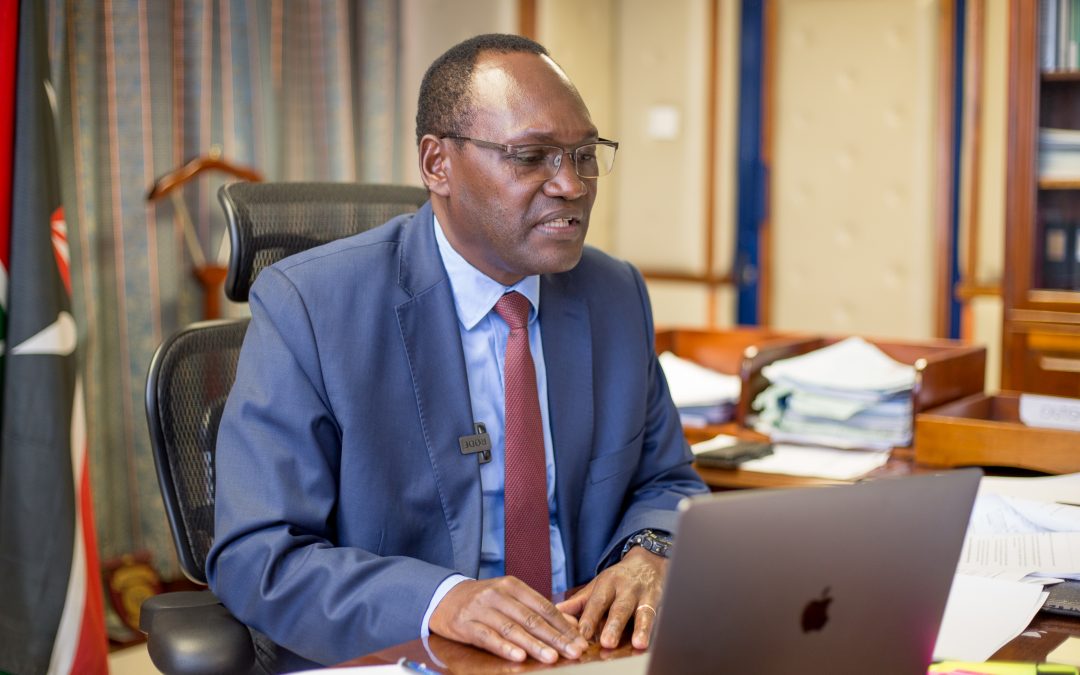Principal Secretary in the Ministry of environment, Dr. Chris Kiptoo says the government is planning to plant 2 billion trees by 2022 to enhance the country’s forest cover and reclaim 5.1 million hectares of degraded landscape.
While giving a Keynote address during a Webinar hosted by the Konza Technopolis Development Authority (KoTDA) dubbed urban environmental planning post Covid-19: the future of smart cities the PS said the Government had hoped to plant 500 million trees this year, 700million trees in 2021 and 800 million trees in 2022, but the challenge has been availability of seedlings.
Dr. Kiptoo said the Government is going to map, register and certify tree nurseries as part of Post Covid-19 plans. This includes a tree nursery in Konza Technopolis.
This, the PS added, was in line with the country’s tree planting strategy and efforts to achieve our global commitment with respect to climate change, biodiversity conservation, and land degradation.
“We are keen to rally 35 million Kenyans to plant trees. If we say we plant 60 seedlings in one day, that is actually 2 billion trees,” he added. The Kenya Forestry Research Institute (KEFRI), he further said, has indicated that the country needs 100tonnes of seeds for the 2 billion trees.
“We want to support nurseries through private sector engagement. We want to have a donor and private sector conference where we will get pledges and commitment to buy the seeds. We want to also create Post Covid jobs,” Dr. Kiptoo said, adding that this will also support enterprises.
On his part, Information Communication and Technology (ICT), Innovation and Youth Affairs Principal Secretary, Mr. Jerome Ochieng noted that the novel coronavirus has affected almost every aspect of life and has long-term effect on how humans interact and relate to the environment too.
Konza Technopolis, he said, targets to plant at least 10,000 tree seedlings every year for both the Technopolis and the community.
In his address, Mr. Ochieng said that Konza’s developmentmeets the needs of present generations without compromising the needs of future generations.
He also gave an update on the progress at the Konza Technopolis saying currently under implementation is phase one under Engineering, Procurement, Construction and Financing that will see a total built up area of 1.5 Million m2 and 30,000 residents of which 17,000 will be the total number of workers anticipated.
“This will ensure that the smart Technopolis does not grapple with the common problems witnessed in our cites and urban areas,”he added.
The webinar hosted over 300 participants drawn from across the urban planning and environmental sectors, including Deputy Director General Nairobi Metropolitan Services (NMS), Mr. Enosh Onyango, Amb. Ms. Njambi Kinyungu, UN Habitat Permanent Representative, Dr. Ademola Olajide, Representative of the United Nations Population Fund to Kenya, Ms.Karen Basiye, Safaricom Head of Sustainable Business and Social Impact, Dr. Shipra Narang Suri, Chief, Urban Practices Branch at UN-Habitat, Ms. Juliet Rita, Chairperson Architectural Association of Kenya (AAK) Town planners chapter.
